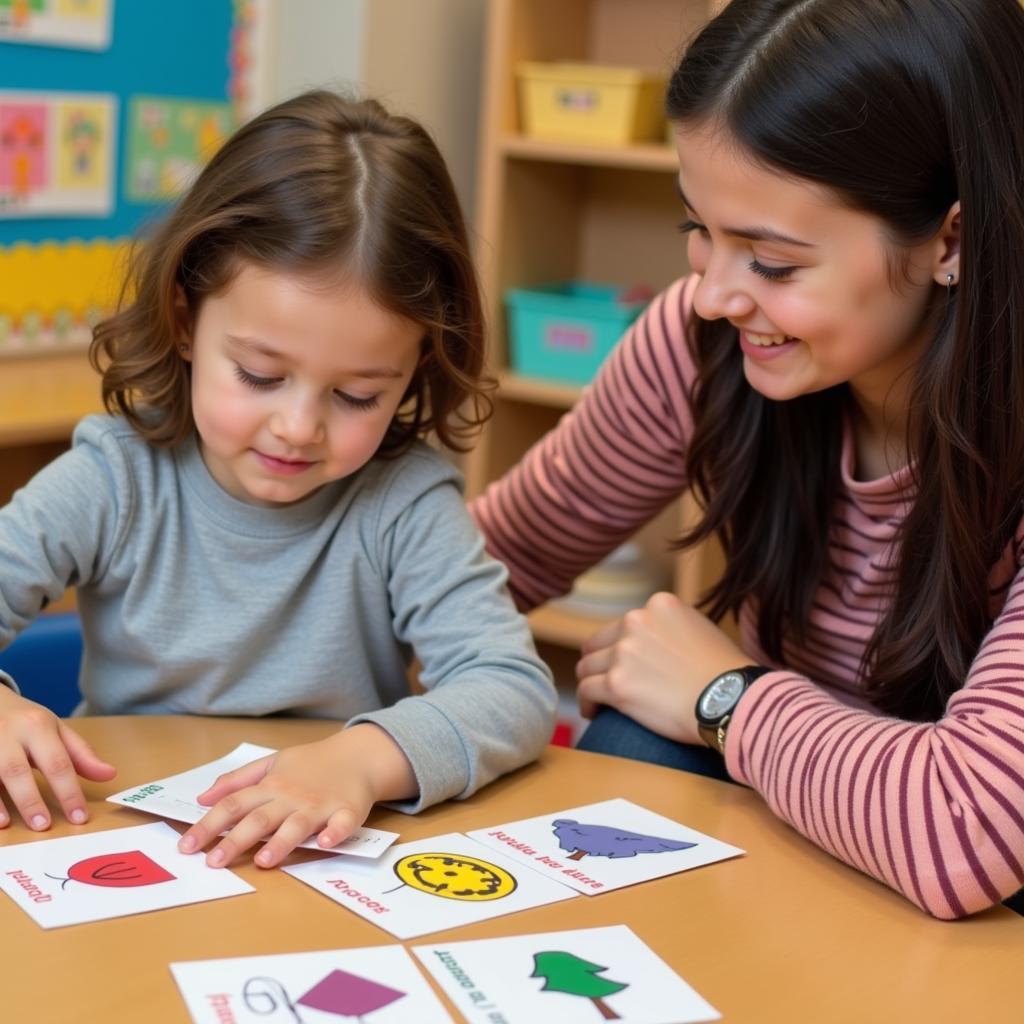“Think before you speak” – a proverb passed down through generations. And for preschoolers, the golden age of development, language training is more important than ever. This focus on early childhood language development is key to unlocking the door to knowledge, helping children communicate confidently and integrate into the world around them. Right from their first steps in life, sparking a love for language will lay a solid foundation for their future. Want to learn more about preschool education? See early childhood education topics.
The Importance of Language Development for Preschoolers
Language is not just a communication tool, but also a bridge that helps children explore the world, express emotions, and develop thinking. A child equipped with a rich vocabulary and good expressive ability will be more confident in communication, learn more effectively, and easily integrate into the community. Ms. Nguyen Thi Lan, a preschool education expert in Hanoi, emphasized in her book “Igniting Language for Children”: “The preschool period is a crucial time to build a language foundation for children, helping them develop comprehensively in terms of intellect, emotions, and social skills.”
Effective Methods for Preschool Language Development
There are many methods to help preschoolers develop language, from reading stories, storytelling, singing, to role-playing games, language games, and more. Combining a variety of these methods will help children absorb knowledge naturally and enthusiastically. For example, when children participate in a storytelling session about the Mid-Autumn Festival, they not only hear interesting stories but also learn more about Mid-Autumn Festival riddles for preschoolers. Integrating play activities into the learning process helps children absorb knowledge easily and effectively. I remember once, in my class, I organized a “Find the object by description” game. The children participated enthusiastically, both playing and learning how to express themselves accurately and practice listening comprehension.
The Role of Teachers and Families
Teachers and families play an important role in developing language for children. Teachers need to create a friendly learning environment, encouraging children to communicate and use language. Families also need to spend time talking, reading books, and telling stories to their children. As the saying goes, “Like father, like son,” parents who regularly read books and talk will create a positive language environment for their children. Mr. Pham Van Toan, a respected educator, once said: “Family is a child’s first school, and parents are their first teachers.” Images of images of preschool teachers loving children are always imprinted in the minds of young children.
Challenges and Solutions
Some children may face difficulties in language development due to various reasons. Parents and teachers need to be patient, observe, and find appropriate methods to support them. Remember that each child is unique, and children should not be compared with others. Creating a friendly and welcoming preschool signs also contributes to creating a positive learning environment for children.
 Solutions to help preschoolers overcome language development difficulties
Solutions to help preschoolers overcome language development difficulties
3 Ngọn Nến Go Vap Kindergarten – A Bright Spot in Early Childhood Education
3 Ngọn Nến Go Vap Kindergarten is known for its high-quality preschool education program, with a special focus on language development for children.
In conclusion, language development for preschoolers is a long journey that requires effort from both families and schools. Be patient, loving, and accompany your children on their colorful language discovery journey. Please leave a comment and share this article if you find it helpful. You can also explore other articles on our website. Contact Phone Number: 0372999999, or visit address: 234 Hao Nam, Hanoi. We have a 24/7 customer support team.